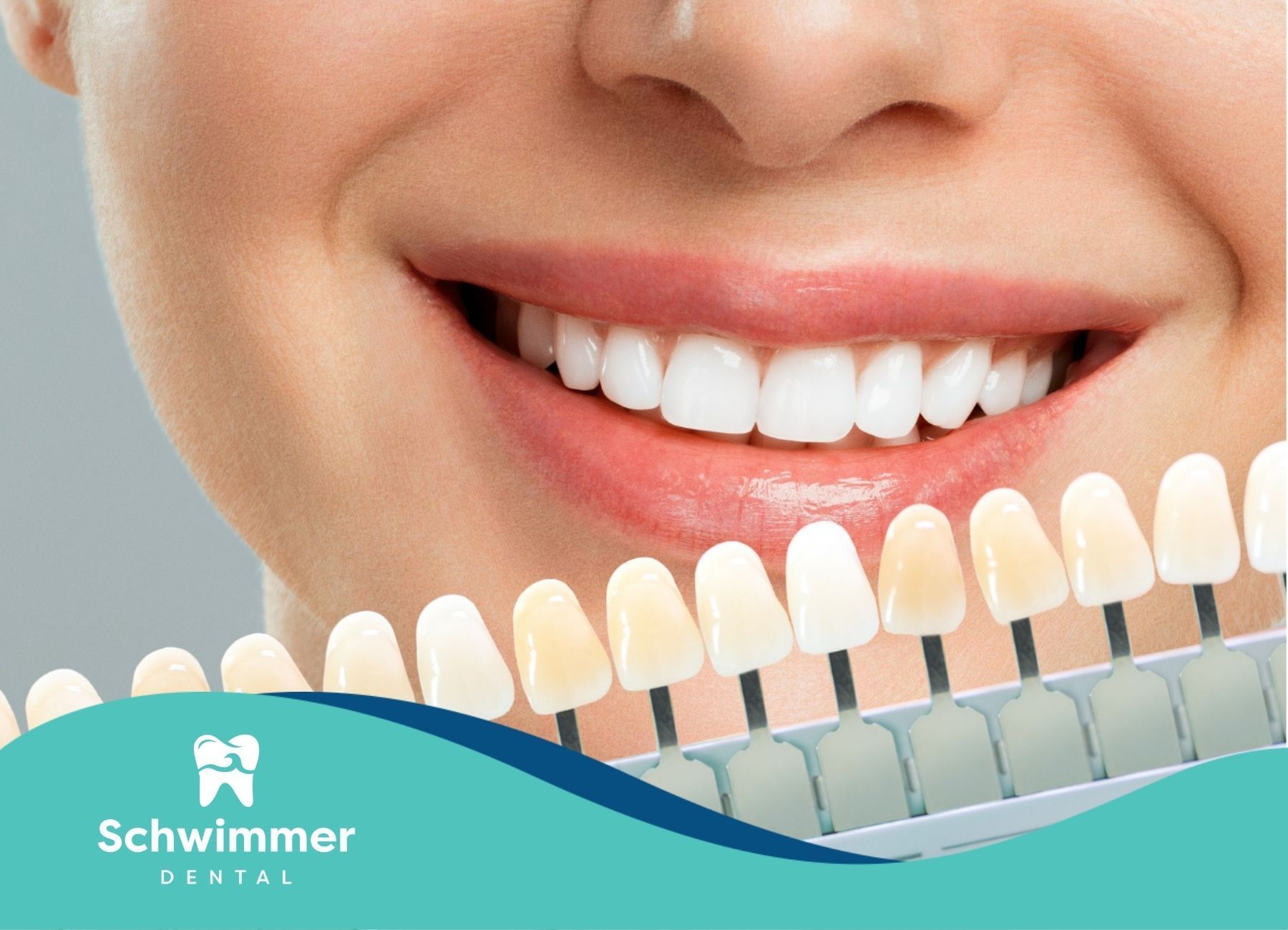What is the Best Treatment for Bruxism?
Many people don’t realize they grind their teeth until they wake up with a sore jaw, headaches, or even damaged teeth. Over the years, many patients have shared their experiences of bruxism. One patient, a 35-year-old teacher, had been unknowingly grinding her teeth for years. By the time she sought treatment, her enamel was significantly worn down, and she needed restorative dental work.
Another, a college student, discovered his nighttime grinding only after his roommate complained about the noise. A third case involved a businessman who experienced jaw pain so severe that it affected his speech during presentations.
Bruxism, or teeth grinding, affects millions of people, often without them realizing it. While some grind their teeth due to stress, others experience it because of misaligned teeth or sleep disorders.
But what is the best treatment for bruxism? This guide explores the most effective solutions based on research, expert recommendations, and real-world experiences.
What is Bruxism?
Bruxism is the habitual grinding or clenching of teeth, often occurring unconsciously during sleep (sleep bruxism) or while awake (awake bruxism). While occasional teeth grinding may not cause harm, frequent bruxism can lead to severe dental and health issues.
Common Symptoms of Bruxism
- Jaw pain or tightness
- Worn-down, chipped, or fractured teeth
- Headaches, especially in the morning
- Increased tooth sensitivity
- Ear pain without infection
- Sleep disturbances (for sleep bruxism)
- Indentations on the tongue or inside of the cheeks
What Causes Bruxism?
Bruxism can result from various factors, including:
- Stress and Anxiety: Emotional stress is a leading cause of teeth grinding.
- Sleep Disorders: People with sleep apnea or snoring issues are more prone to bruxism.
- Malocclusion (Misaligned Teeth): Improper bite alignment can trigger grinding.
- Medications & Substances: Certain antidepressants, caffeine, alcohol, and recreational drugs can increase the risk.
- Neurological Disorders: Conditions like Parkinson’s disease can contribute to bruxism.
Best Treatments for Bruxism
The best treatment depends on the cause, severity, and symptoms of bruxism. Treatment options typically fall into three categories: dental solutions, behavioral therapy, and medical interventions.
1. Dental Treatments for Bruxism
Custom Mouthguards (Nightguards)
One of the most effective treatments for sleep bruxism is wearing a custom-fitted mouthguard. Unlike over-the-counter guards, custom nightguards are designed by dentists to fit your teeth perfectly, reducing grinding damage and alleviating jaw strain.
Pros:
✔ Provides immediate protection for teeth
✔ Reduces jaw pain and headaches
✔ Lasts longer than store-bought guards
Cons:
✘ Can be costly without insurance
✘ Takes time to adjust to wearing one at night
Dental Correction (Orthodontic Treatment)
If bruxism is caused by misaligned teeth, orthodontic treatments such as braces, Invisalign, or bite adjustments may help reduce grinding.
Pros:
✔ Addresses the root cause
✔ Long-term solution for malocclusion-related bruxism
Cons:
✘ Expensive and time-consuming
✘ Not necessary for all cases
Dental Crowns and Restorations
For patients with severe enamel wear, dentists may recommend dental crowns, veneers, or bonding to restore damaged teeth.
Pros:
✔ Protects weakened teeth
✔ Improves overall dental health and function
Cons:
✘ Requires
dental procedures
✘ Can be expensive without insurance
2. Behavioral and Lifestyle Treatments
Stress Management and Therapy
Since stress is a significant cause of bruxism, relaxation techniques like meditation, deep breathing, and cognitive behavioral therapy (CBT) can help reduce teeth grinding.
Pros:
✔ Addresses underlying emotional triggers
✔ No side effects
Cons:
✘ Requires time and commitment
✘ Results vary from person to person
Jaw Exercises and Physical Therapy
Stretching and strengthening exercises for the jaw muscles can help relieve tension and prevent involuntary clenching.
Pros:
✔ Non-invasive and natural approach
✔ Helps reduce jaw pain and improve function
Cons:
✘ Requires consistency
✘ May not completely stop grinding
Sleep Hygiene Improvements
Improving sleep habits, such as maintaining a regular sleep schedule, avoiding caffeine before bed, and creating a relaxing bedtime routine, can help reduce sleep bruxism.
Pros:
✔ Simple and cost-free
✔ Improves overall sleep quality
Cons:
✘ May not be effective for severe cases
✘ Takes time to see results
3. Medical Treatments for Bruxism
Botox Injections for Bruxism
Botox injections in the jaw muscles (masseter muscles) can reduce grinding by relaxing the muscles responsible for clenching.
Pros:
✔ Provides quick relief for severe bruxism
✔ Reduces jaw pain and tension
Cons:
✘ Expensive and temporary (lasts 3-6 months)
✘ Not a permanent solution
Medications for Bruxism
In some cases, doctors may prescribe muscle relaxants, anti-anxiety medications, or low-dose antidepressants to help reduce bruxism symptoms.
Pros:
✔ Effective for
stress-related bruxism
✔ Can improve sleep quality
Cons:
✘ Potential side effects
✘ Not a long-term solution for everyone
Conclusion
Bruxism can be a frustrating and damaging condition, but effective treatments are available. From custom nightguards and dental corrections to stress management and Botox injections, the best treatment depends on individual needs. The key is early intervention—recognizing the symptoms and seeking professional help before serious damage occurs.
At Schwimmer Dental, expert dentists provide custom solutions for bruxism, from high-quality nightguards to advanced restorative treatments. If you suspect you’re grinding your teeth, don’t wait for the damage to worsen. Schedule a consultation with Schwimmer Dental today and protect your smile!
Frequently Asked Questions
Can bruxism go away on its own?
Mild cases of bruxism may resolve without treatment, especially if stress levels decrease. However, chronic bruxism often requires intervention to prevent damage.
What happens if bruxism is left untreated?
Untreated bruxism can lead to severe tooth damage, jaw pain, temporomandibular joint (TMJ) disorders, and even sleep disturbances.
Is bruxism more common at night?
Yes, sleep bruxism is more common because people are unaware they are grinding their teeth while sleeping. However, awake bruxism also affects many individuals.
Sources:
- https://www.mayoclinic.org/diseases-conditions/bruxism/diagnosis-treatment/drc-20356100
- https://www.ncbi.nlm.nih.gov/books/NBK482466/
- https://www.hopkinsmedicine.org/health/conditions-and-diseases/bruxism
- https://ostrowonline.usc.edu/5-ways-to-treat-bruxism/
- https://pmc.ncbi.nlm.nih.gov/articles/PMC7793806/



